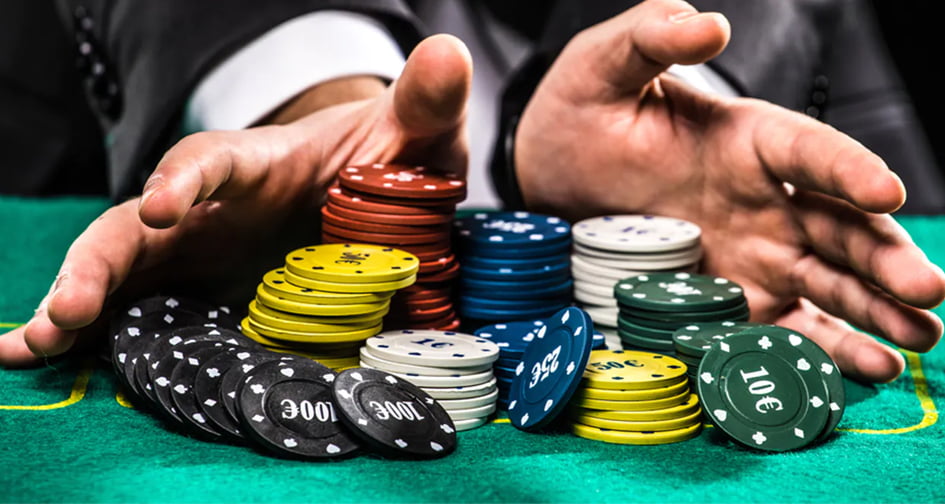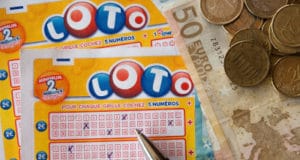Gambling for most people is a fun, once in a while activity, and for a few lucky ones, a chance to bag that attractive jackpot. However, for other people, it becomes a compulsive behavior which leads to destruction in their financial, psychological, physical, and social lives. Some even end up hurting their relationships. This obsessive behavior is classified as an impulse-control and addiction disorder.
In this feature, we are going to look at the symptoms, causes, treatment, as well as relapse prevention measures for gambling addiction. Let’s set the ball rolling

Symptoms
You may wonder how you know if you are a pathological gambler. Although some people gamble occasionally, others advance to habitual gambling where they expose themselves to serious personal problems, financial devastation, and a possibility of criminal activity.
Sign of gambling addiction include;
- Always being engrossed in gambling, much that you keep planning how to get more wagering money
- Needing to wager snowballing amounts of money to achieve the same thrill
- Trying without success to control, cut back, or completely stop gambling.
- Feeling irritable or restless when you try to cut back chronic gambling
- Gambling to break free from problems or suppress feelings of anxiety, guilt, depression, or helplessness.
- Chasing losses by trying to recover lost money by gambling more
- Lying to family members and other loved ones to hide the extent of your gambling
- Compromising work, significant relationships, job opportunities, or school because of gambling.
- Turning to robbery or swindling to get money for wagering
- Borrowing, asking for help or relying on others to get out of trouble you got into because of gambling

Most casual gamblers will stop when they lose or set a loss limit, but addicted gamblers tend to keep gambling to recover the lost cash, a habit that becomes destructive in the long run.
Habitual gamblers are often associated with alcohol and substance abuse, anxiety, and depression. They also frequently consider suicide.
Problems such as divorce, bankruptcy, imprisonment, and job loss may arise if the addiction is not contained at an early stage.
Causes
The signs of gambling disorder can occur during puberty and young adulthood while for other people, it may show during middle and even older adulthood. Gambling disorder progresses over the years, though the development appears to be more rapid in females than in males. Individuals who develop a gambling disorder show a specific pattern of gambling that increases gradually both in the amount wagered and frequency.
Milder forms of this disorder can grow into more severe cases.
Majority of the individuals with gambling disorder report to struggle with one or two types of betting while others may have many kinds of betting being problematic to them. Gamblers are likely to engage in one form of gambling (buying scratch tickets daily) more frequently than other types (playing blackjack or slot machines weekly at the casino).
Gambling frequency can be more related to the form of gambling than to the severity of the general gambling disorder. Purchasing a single scratch ticket daily, for example, may not be problematic, while less frequent card, sports or casino gambling may be part of the gambling disorder.
In the same way, the amounts of money wagered may not in themselves be indicators of a gambling disorder. Some individuals may wager staggering amounts per month and not have a gambling problem, while others may bet smaller amounts yet experience problems related to gambling.
Patterns in gambling may be episodic or regular while the gambling disorder may be persistent or in remission. Gambling activities may increase during periods of substance use or abstinence and during periods of depression and stress.
There may also be periods of heavy gambling and serious problems, times of abstaining totally and others of non-problematic gambling. Gambling disorder is sometimes associated with spontaneous and long-term remissions.
Some individuals underjudge their vulnerability to develop an addiction to gambling or come back to gambling after a respite. During their remission period, they may erroneously presume that they no longer have a problem controlling their disorder and they may wager on some types of gambling without experiencing any issues, only to relapse.
The early signs of addiction to gambling are more common in males than in females. People who start gambling during their youth do so with their family members or friends. Early life gambling disorder is associated with substance abuse and impulsivity. Many high school and college students manage to grow out of the disorder with time, though it may become a lifetime problem for others.
For females, mid and later life emergence of the disorder is more common than in males.
There are also gender and age differences in the form of gambling activities and the pervasiveness of gambling disorder. Gambling addiction is more common in young and middle-aged individuals than in older adults. It is also more prevalent in males, among young adults and adolescents, than in females.
Young adults prefer various forms of gambling (sports betting), whereas older individuals are more likely to have problems with bingo and slot machine gambling. The proportions of those who seek gambling addiction treatment are low across all age groups. Younger individuals are more likely to seek treatment.
Males have a higher probability of beginning gambling earlier in life and have an onset of gambling disorder at a younger age than females. Females are more likely to start gambling later on in life and have an onset of gambling disorder in a shorter time-frame. Females who suffer from gambling addiction are also more likely to have bipolar, anxiety, and depressive disorders, than males. Rates of seeking treatment for gambling disorder are low among individuals with the addiction, regardless of gender.
Treatment
Gambling disorder is manageable with the right treatment. Unlike other forms of addictions where you need the object of your obsession to survive, in gambling addiction, you only need to learn how to develop a healthy and balanced relationship with money.
For addicted individuals, it is crucial that they quit altogether as even occasional gambling can lead to a relapse. Enrolling in a recovery program can help such individuals develop impulse control. Gambling addiction is treated with similar methods to other forms of addiction.
- Outpatient rehabilitation program- This is the most preferred method by people with gambling disorders. In this program, individuals attend classes at a facility. It may also involve group sessions and one-on-one therapy as individuals continue to live at home, attend work, school, and other daily activities.
- Inpatient rehabilitation program- This form of rehabilitation may not be frequently required, but some people prefer the structure given by an inpatient program at a treatment center to overcome the disorder. This will especially be helpful if you find that it is tough to avoid casinos and other gambling facilities without help. If you opt for this program, you will have to stay at the facility for a specified amount of time, could be from 30 days to an entire year.
- Twelve-step programs- Gamblers Anonymous, or other 12-steps programs, may be suitable for those who cannot afford more intensive rehabilitation programs. It follows a similar model as Alcoholics Anonymous, which helps build a support network of other recovering gambling addicts. Group members may meet one or more times a week.
- Psychotherapy- This is also known as cognitive behavior therapy. It is a one-on-one therapy that helps addicts whose problem is from deeper emotional or avoidance issues. Addicts will need to deal with underlying problems before changing self-destructive patterns, including gambling addiction. Counselling gives you a chance to open up and deal with these issues.
- Medication- In some instances, gambling addiction may be as a result of underlying mental health conditions, such as bipolar disorder. In such cases, addicts must learn to control the underlying psychiatric condition by medication to develop impulse control.
- Lifestyle changes- Sometimes, the hardest part of the recovery process is dealing with the financial consequences of gambling. In the beginning, you may have to turn over financial responsibilities to a trusted friend, relative, or spouse. You will also have to avoid places that will trigger a relapse, such as sporting events or casinos.
Preventing lapses
Dealing with an addiction of any sort may not be as easy as perceived by others. If you’re not able to completely overcome the habit, do not be too hard on yourself or use it as an excuse to give up. Slipping from time to time is common, but the most important thing is learning from your mistakes and continue working on yourself on the road to recovery. When a gambling craving strikes;
- Avoid isolation- You may attend a Gamblers Anonymous session, call a trusted relative or meet a friend for a coffee date
- Postpone gambling- Tell yourself that you’ll gamble in the next 5 minutes, half an hour or one hour. As you wait, the compulsion to gamble may become weak enough to resist or go away.
- Think of what will happen if you give in to the urge to gamble- Visualize how you’ll feel after you’ve disappointed yourself and loved ones again and all your money is gone.
- Use another activity to distract yourself- You can watch a movie, go to the gym, or practice relaxation exercises.
Just like any other addiction, compulsive gambling can be challenging to stop. Since many people use gambling as a social activity and don’t develop a habit, you may find it difficult to admit that you have a problem. You must overcome the shame, which may be the stumbling block to your road to recovery.
Signing up for a rehabilitation and recovery program will help you overcome your gambling disorder, improve your financial situation and relationships.




